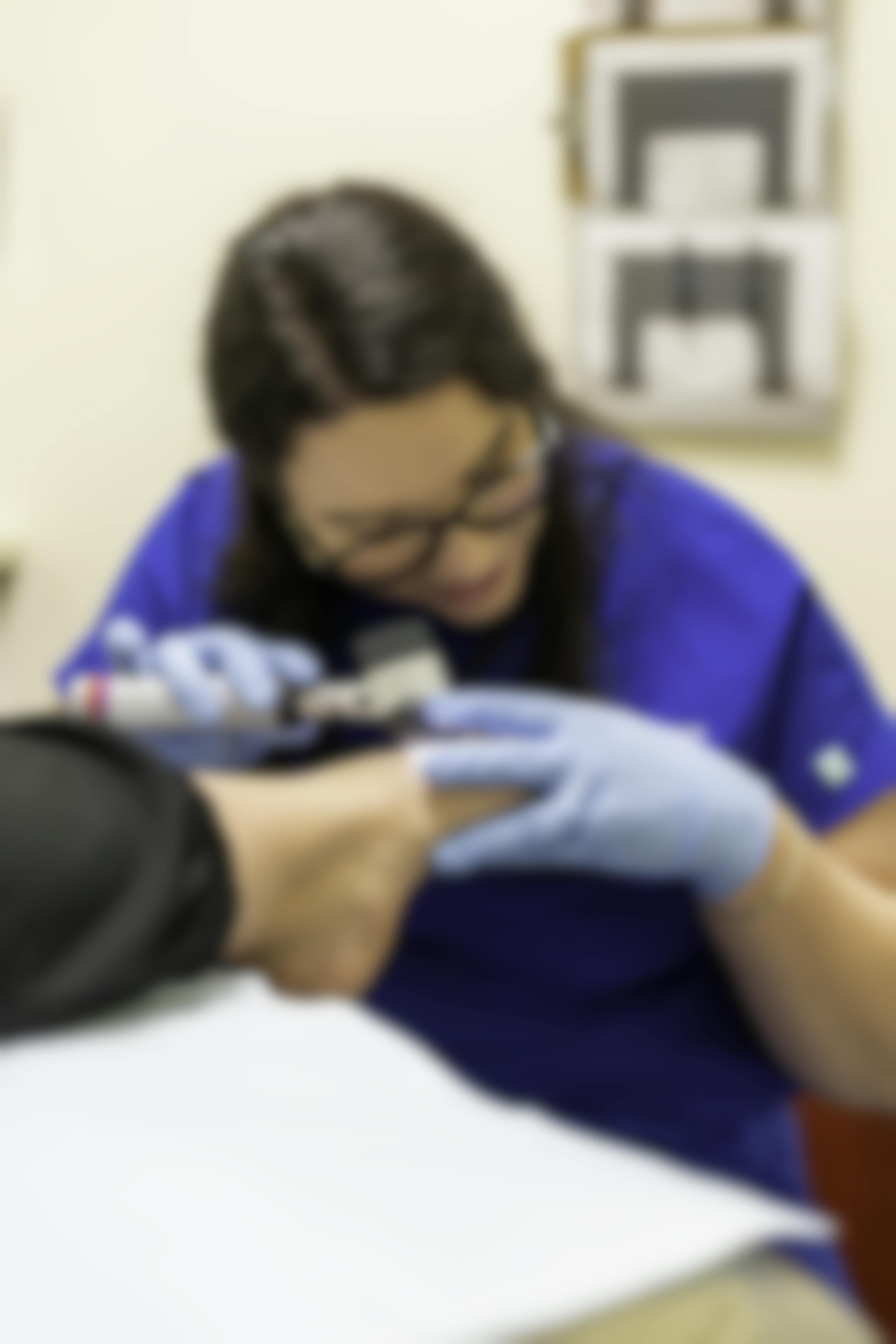Symptoms
- Discomfort while walking
- Pain
- Swelling in the skin
- Impairment of the aesthetic of the foot
A plantar wart can also hide more serious skin damage, such as melanomas and carcinomas of the skin. Visit us to find the best solution depending on the type of and the duration of infection by the wart.
Podiatric Interventions

Dermatological evaluation
The podiatrist has the ability to evaluate any dermatological problem of the foot. A plantar wart has specific characteristics that the podiatrist will look for before making a diagnosis and offering treatment. Plantar warts are often misdiagnosed because they can resemble other dermatological problems. It is therefore important before any treatment to ensure the presence of a plantar wart.
Prescription Treatments
Several treatments are available under prescription and are used to eliminate resistant and deep warts. From topical to injections, the treatments are used to eliminate the cells affected by the virus and impedes its reproduction. The efficiency rate varies between patients and some options can reach up to 95%. It is possible to feel pain during the application, as well as discomfort in the days following the intervention. The symptoms are a result of the location and aggressiveness of the plantar wart.
Images
FAQs
What Are the Risks Associated with Untreated Plantar Warts?
The main risks are contagion of the surface of the foot, as well as spreading the virus to other individuals. Furthermore, less than 5% of plantar warts can cause skin cancer. If you suspect the presence of these symptoms, consult your podiatrist. He will properly diagnose the wart.
When to Consult for a Plantar Wart?
As soon as you become aware of a suspicious lesion on your foot, it is recommended that you consult a podiatrist to prevent contagion. In order to not distort the diagnosis, it is recommended that you apply no medication for three weeks prior to your consultation.
Why Are Children More Prone to Plantar Warts?
Children are the most vulnerable to this type of virus because it propagates in public places such as swimming pools, spas, showers, etc. If the plantar wart is not treated properly, it can spread to other family members through contaminated soil. When it comes into contact with damaged skin, the virus enters the skin to form a benign and contagious tumour.
